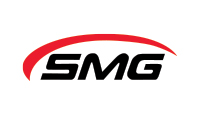We manage energy project development, environmental permitting, remediation and compliance, insustrial hygiene, health & safety, auditing, environmental management, government relations. We solve your problems in all of these areas. We move quickly and dig deeply to reach your goals. We work wherever you are.
How can SMG help you?
SMG POV
A first of its kind program – the water quality credits trading pilot program – has been launched in the Ohio River Basin. Water quality trading is a market-based approach that seeks to achieve water quality goals for nutrients, such as phosphorus and nitrogen, through programs that will allow permitted emitters to purchase nutrient reductions from another source.
Indiana Duke Energy, Hoosier Energy, and American Electric Power were the first buyers of the credits. They bought the credits from American Farmland Trust (AFT) which has partnered with the Electric Power Research Institute (EPRI). The companies purchased 9000 stewardship credits and agreed to retire the associated nutrient and ecosystem benefits, rather than apply them towards possible future permit requirements. The buyers can use the credits to meet corporate sustainability goals and may also be considered for future flexible permit compliance schedules by participating states.
In August 2012, Ohio, Indiana and Kentucky signed the trading plan making it now the world’s largest water quality trading program. At full scale, it could span up to eight states and potentially create a market for 46 power plants, thousands of wastewater utilities, and approximately 230,000 farmers. Stewardship credit trades will continue through 2014 and 2015 to test critical programmatic features such as an online credit registry and live trading auction.
For more information, click here.
FEATURED PROJECT
PROBLEM
A local company engaged in manufacturing imported a small amount of a chemical substance defined under TSCA. Faced with a potential EPA enforcement action with penalties assessed for noncompliance under TSCA of up to $32,500 per day per violation, the company called SMG for help.
SMG'S APPROACH
SMG analyzed the company’s current TSCA procedures and assisted the company in developing a proactive, cost-effective compliance procedure. SMG also facilitated a training program to educate employees about TSCA.
MG worked with the company to develop mechanisms that assured adherence with the policies that were being implemented for compliance. Procedures to promptly correct any potential violations and prevent future violations were also put into place.
RESULTS
SMG was able to show that the company complied with the relevant TSCA regulations and was improving their TSCA policies and procedures to assure that future issues were less likely to occur. The company was not subjected to the proposed penalties and now has mechanisms in place to maintain TSCA compliance.
